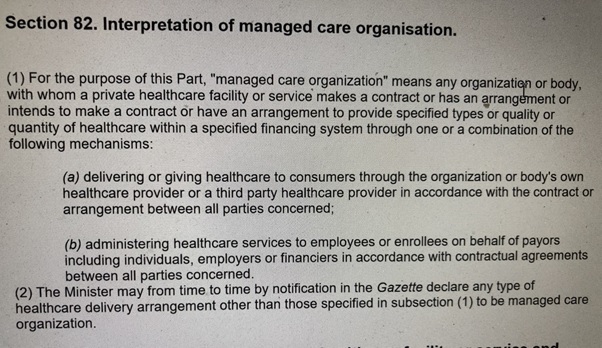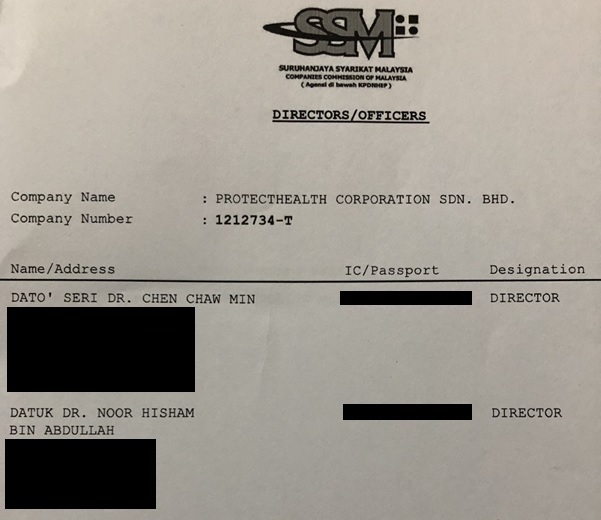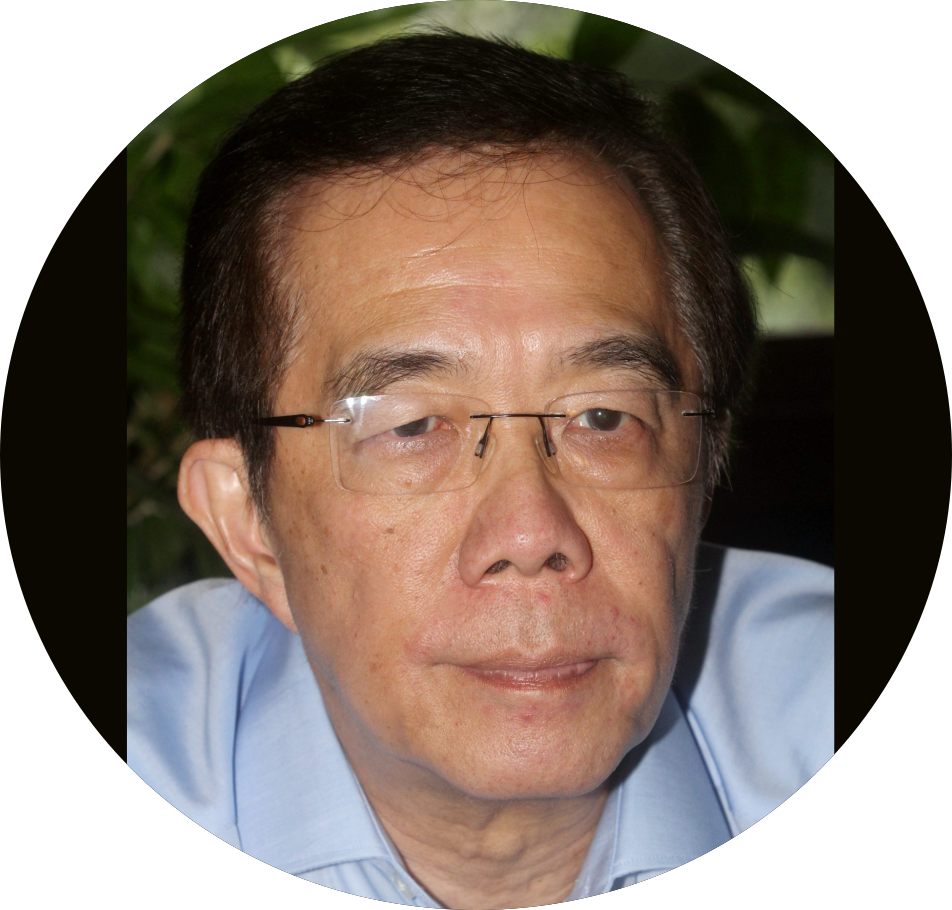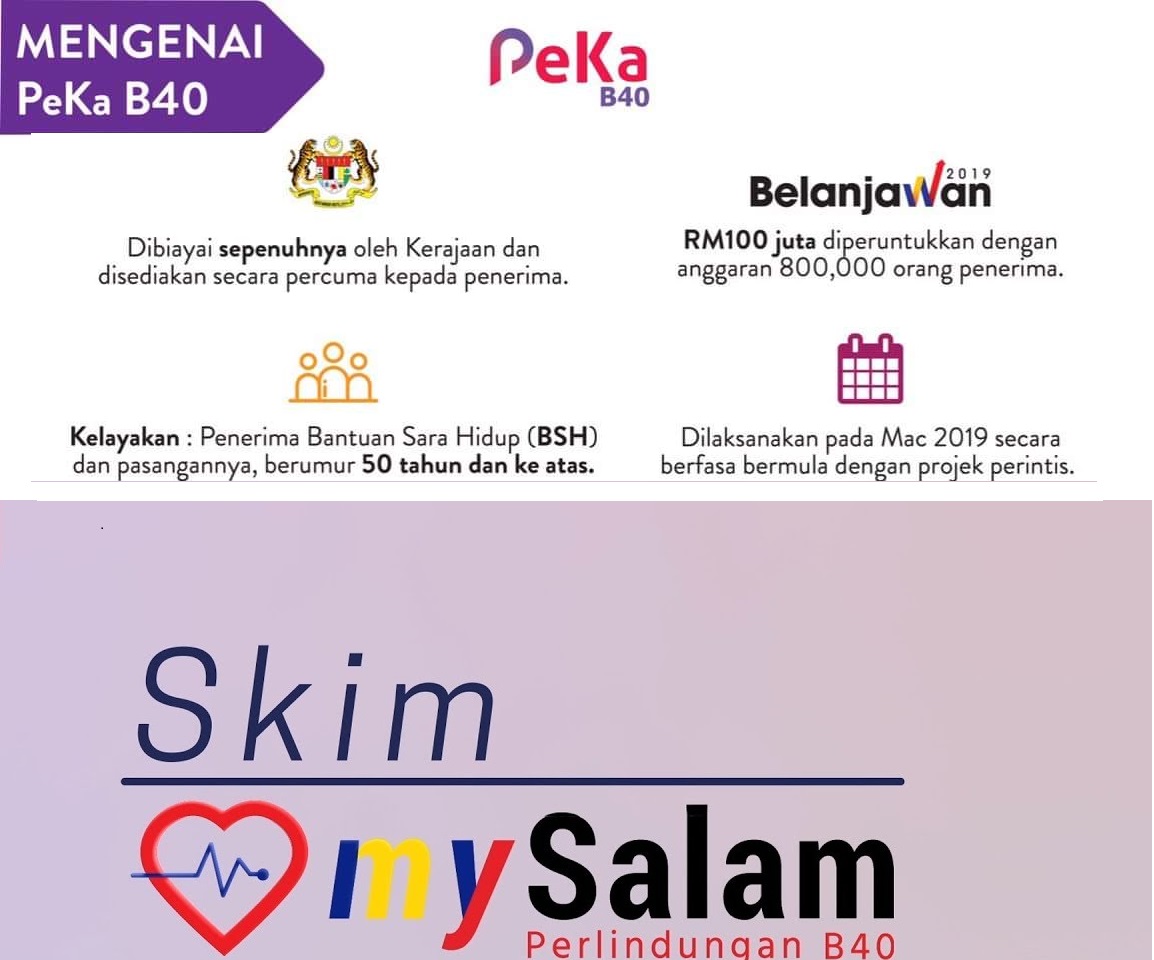The MySalam and PeKa projects were launched with the objectives of providing health protection for the B40 in the event of 36 critical illnesses in the former and the screening of a projected 800,000 of the B40 aged 50 years and above for non-communicable diseases (“NCDs”) in the latter.
Eligible persons treated at Health Ministry hospitals made claims from MySalam with effect from 1 March 2019. Likewise, the PeKa screening for NCDs started from 15 April 2019.
MySalam
MySalam provides a one-off contribution of RM8,000 directly to those suffering from any of the 36 critical illnesses covered under the scheme. Those eligible will also get RM50 daily for 14 days should they be admitted to Health Ministry hospitals with a cap of RM700 per year.
The deputy Finance Minister informed the Dewan Rakyat on 8 April 2019 that as at 4 April 2019, there were 1,094 claims of which a total of RM40,200 was disbursed to 97 claimants – 95 for hospital admissions and two for critical illness with a RM8,000 one-off payment. This raises the question of whether the social objectives of MySalam are achievable.
Some essential aspects of MySalam remain unknown.
Some of the definitions of critical illness in MySalam’s website are vague and difficult to comply with.
For example, the definition for “Infection with the Human Immunodeficiency Virus (HIV) through a blood transfusion, provided that all of the following conditions are met:
- the blood transfusion was medically necessary or given as part of a medical treatment;
- the blood transfusion was received in Malaysia or Singapore after the commencement of the Certificate;
- the source of the infection is established to be from the institution that provided the blood transfusion and the institution is able to trace the origin of the HIV tainted blood;
- the Person Covered does not suffer from haemophilia; and
- the Person Covered is not a member of any high risk groups including but not limited to intravenous drug users.”
Another example is that of brain surgery “The actual undergoing of surgery to the brain under general anaesthesia during which a craniotomy (surgical opening of skull) is performed.
For the above definition, the following are not covered:
- burr hole procedures;
- transphenoidal procedures;
- endoscopic assisted procedures or any other minimally invasive procedures; and
- brain surgery as a result of an accident.”
Such definitions can be found in critical illness policies of commercial insurance companies in which the payouts are substantial for which the premiums are also substantial.
The question is why are definitions of commercial insurance companies used by MySalam.
One does not have to be cynical to ask about the disbursements policy of MySalam.
The application forms for MySalam are on-line. The application process for those who are not internet savvy or who have inadequate or no access to the internet remain unknown.
Patient confidentiality and consent issues in MySalam remain unknown.
PeKa B40
The PeKa B40 comprises health screening for those aged 50 years and above (projected 800,000 on a first-come first-served basis), medical devices aid, incentive to complete cancer treatment and transport cost incentive, with an allocated budget of RM100 million.
The programme is managed by ProtectHealth Corporation Sdn Bhd (PHCorp), purportedly a government-linked company (GLC).

There are provisions for MCOs in the Private Health Care Facilities and Services Act (“PHCFSA”). According to section 82 of the PHCFSA, PHCorp is prima facie a MCO.
Although the Health Minister has claimed that it is not, it appears that he has not been advised that there is no provision in the PHCFSA for him to exclude an organization from being defined as a MCO.
The question that arises is how can the Health Ministry regulate its own GLC.

According to the Companies Commission, PHCorp’s nature of business is “Medical and health insurance / Takaful including establish and operate any kind of health financing mechanism”.
The question arises as to whether PHCorp has a licence from Bank Negara.
At the meeting on 10 January 2019, the Health Ministry informed the representatives of the medical associations present that doctors had to reach out to the B40 to get their participation in PeKa B40.
If that is still the current stance of the Ministry, would such doctors be considered insurance agents with all its attendant implications?

The directors of PHCorp are the current secretary general of the Health Ministry and the director general of health.
Are they directors because of their governmental positions or are they directors in their personal capacity? If it is the former, what then is the grievance mechanism in PHCorp? In the event grievances arise, how will the principle of natural justice, Nemo Judex in causa sua (Latin for “No man should be a judge in his own case”) apply?
How can the regulator regulate itself? If it is the latter, is it in compliance with the government’s rules on directorships of GLCs?
According to the Companies Commission, PHCorp was incorporated on 19 December 2016 as private company limited by shares with an initial share capital of RM2. The share capital was RM1,000,000 as at 31 December 2017. The share capital increased to RM26,000,002 on 21 March 2018.
Disclosure of the source of these monetary changes are needed especially with claims that the public health sector is underfunded.
Going forward
The lack of transparency of MySalam and PeKa B40 continue to prompt unnecessary questions and speculation.
The Health Ministry’s approach brings back memories of the 1Care for 1Malaysia debacle.
Whether MySalam and PeKa B40, as it currently stands, were designed for success is for the reader to judge.
Transparency, accountability and absence of conflict of interest will certainly go a long way in ensuring achievement of the objectives of MySalam and Peka B40.

Dr Milton Lum is a past President of the Federation of Private Medical Practitioners Associations, Malaysia and the Malaysian Medical Association.
This article is not intended to replace, dictate or define evaluation by a qualified doctor. The views expressed do not represent that of any organization the writer is associated with.







